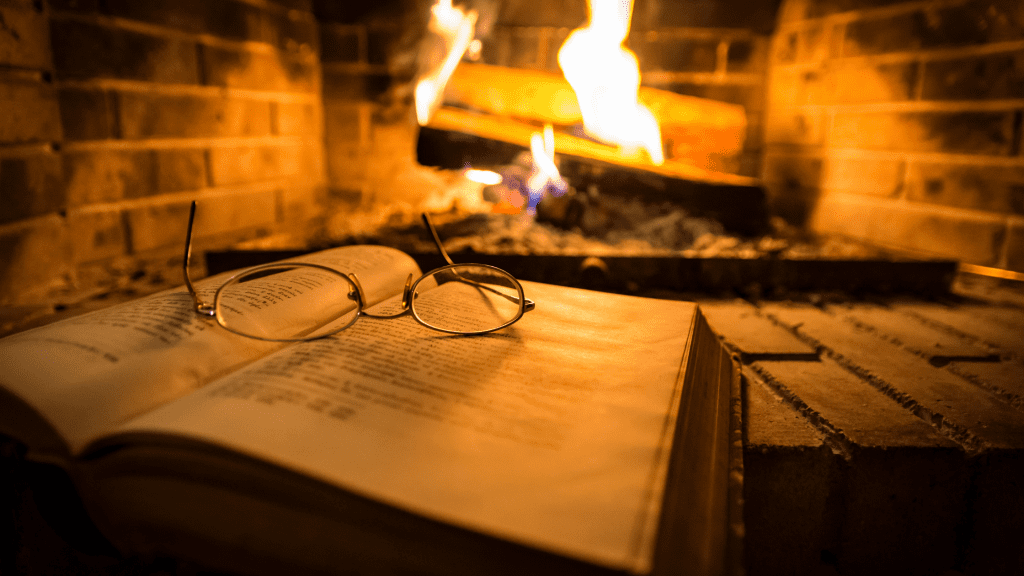
Jolabokaflod
The Ultimate Bookish Holiday
For three years now my partner and I have exchanged books on Christmas Eve. We started doing this after I first read an article on the Icelandic tradition of Jolabokaflod. And the fact that we’ve spent the past two of those three years on opposite sides of the country has not impeded the tradition. In fact, the yearly swap of books actually lets us share in an activity that we can both engage with from a distance. I mean it’s not quite the same as sitting on the couch reading together, but this bookish holiday tradition is still one of my favorite moments of the year.
Gift Giving
With this year’s gift for B, I played it safe and easy. I knew he was blissfully struggling his way through Mark Fisher’s Capitalist Realism. He’d raved about Fisher’s brilliance more than once so I scoped out other books by him. I found one instantly that I thought would pique his interest. B is a huge movie buff who’s favorite genre is horror. So I thought it was kismet that Fisher had written a book called The Weird and the Eerie that explored these two phenomena, not just within the genre of horror but also within other works of film and literature that don’t quite fall within that genre’s confines.


I believe he was rather pleased with the pick, but truthfully my gift paled in comparison to his. Over the years, I had already begun to question if maybe B was a better gift giver than I am. This time though, he really knocked it out of the park and there’s no doubt left in my mind.
Korean Dramas
About a year or two ago, I started watching Korean Dramas. I’m a sucker for anything rom-com and Korean dramas execute on the genre particularly well. Having worked my way through countless rom-coms both Korean and otherwise, it’s not hard to spot recurring themes, patterns and social conventions. It’s obvious that a lot of rom-coms show fantastic and unrealistic representations of love and can often reaffirm traditional gender roles or other toxic cultural norms. Despite this, I still love so many of the K-dramas I’ve seen for the way they can sweep me off my feet and tap into some very basic and raw emotions of comfort and warmth.
But as I began to watch more and more, I began to wonder if there might be a tangible impact to the more toxic ideology perpetuated by many of the shows I’d seen. I used to write these shows off as guilty pleasures, but I started to question if acknowledgement of media as an indulgence and an awareness of its fantastical elements was enough. I really am not sure what the right answer is, but I think knowing the impact that these shows are having on a larger socio-economic scale would help me further define how I want to value and label their presence in my own life.
Gift Getting
B and I had discussed these issues several times, so this year as part of our bookish holiday tradition he gave me two books and four scholarly articles examining the cultural and economic impact of K-Dramas at large. He heavily researched each work he gave me, often skimming large portions of the text himself. He wanted to make sure each one was readable, but comprehensive and focused on a unique perspective of the issue. There were countless other articles that he researched that didn’t make the cut.


I’m truthfully a little shamed by the sheer effort he put into this, but mostly I’m grateful. None of the works are particularly easy to read, and it’s been years since I’ve done any amount of academic research. So if I manage to read just five pages a day, I end up feeling quite proud of myself. It’ll be ages before I get through them all, but I love that he gifted me the tools that I needed to answer questions that I had been asking. See the full list of books and articles below!
- Pop City: Korean Popular Culture and the Selling of Place
- The Rise of K-Dramas: Essays on Korean Television and It’s Global Consumption
- “Boys Over Flowers: Korean Soap Opera and the Blossoming of a New Masculinity“
- “Korean Wave: Enjoyment factors of Korean dramas in the U.S.“
- Chapter 11, “HALLYU.S.A.” from The Global Impact of South Korean Popular Culture
- “Multivocal Post-Diasporic Selves: Entangled in Korean Dramas“
Have any bookish holiday traditions or gifts you want to share? Post them in the comments below!
To read more from the WNBA Blog, click here!




